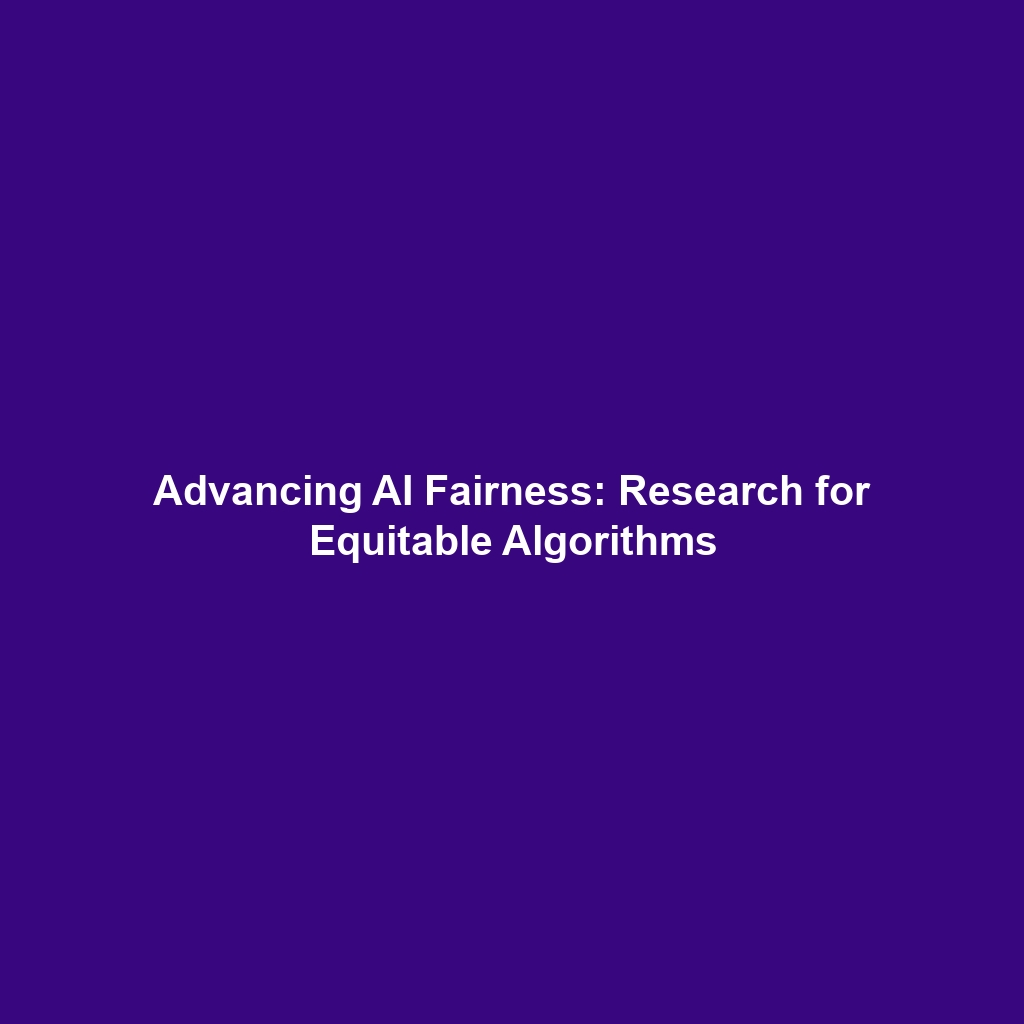Ongoing Research in AI Fairness and Efforts to Design Equitable Algorithms
Introduction
Ongoing research in AI fairness and efforts to design equitable algorithms are increasingly critical in the realm of AI ethics. As artificial intelligence systems permeate various sectors, the potential for bias and discrimination poses serious ethical concerns. This significance extends to the equitable design of algorithms aimed at minimizing harm and promoting fairness. By understanding and implementing practices that enhance AI fairness, researchers and developers can emerge as leaders in establishing ethical standards within technology, ultimately fostering a more just society.
Key Concepts
To delve into ongoing research in AI fairness, several key concepts are essential in understanding its implications in AI ethics. These include:
1. Fairness Definition
Fairness in AI refers to the principle that AI systems should not result in unfair discrimination. Research seeks to define and operationalize fairness within algorithmic processes.
2. Bias Identification
Identifying biases from training data and algorithmic frameworks is crucial. Current studies aim to recognize and rectify these biases, contributing significantly to equitable algorithm design.
3. Accountability and Transparency
Enhancing accountability and transparency in AI systems ensures that stakeholders can understand and trust algorithms, which is vital for ethical AI practices.
Applications and Real-World Uses
The applications of ongoing research in AI fairness reflect its significance in various fields. Here are some notable examples:
- Healthcare: Equitable algorithms are being developed to reduce disparities in healthcare delivery and outcomes.
- Criminal Justice: AI systems are being designed to avoid racial bias in predictive policing and sentencing decisions.
- Finance: Algorithms are being scrutinized to ensure fair access to loans and credit, mitigating discrimination against marginalized communities.
Current Challenges
Despite the advancements, several challenges remain in studying and applying ongoing research in AI fairness:
- Integration of fairness metrics in existing AI frameworks.
- Determining the trade-offs between model accuracy and fairness.
- Lack of comprehensive datasets to test algorithms for biases.
- Resistance to change from industries benefiting from traditional algorithmic practices.
Future Research and Innovations
Looking ahead, ongoing research in AI fairness is poised for exciting innovations:
- New methodologies to assess and mitigate biases in real-time AI applications.
- Incorporation of interdisciplinary approaches, combining ethics, law, and technology.
- Development of AI systems designed with stakeholder input from diverse communities to enhance fairness.
Conclusion
In summary, ongoing research in AI fairness and efforts to design equitable algorithms stand at the forefront of addressing ethical concerns in AI. As technology continues to evolve, so too must our commitment to creating just and fair systems. Continued exploration and implementation of these principles are vital for the future of AI ethics. For those interested in further exploring AI ethics, consider reading more about related technologies and future directions.
